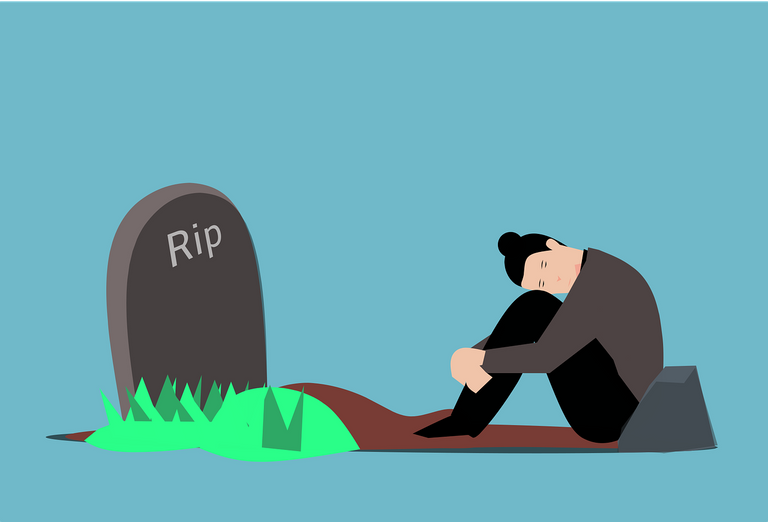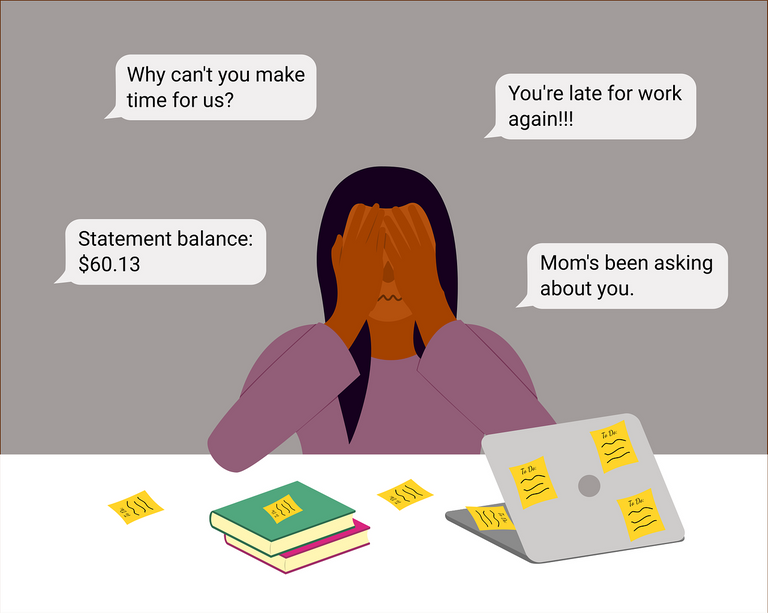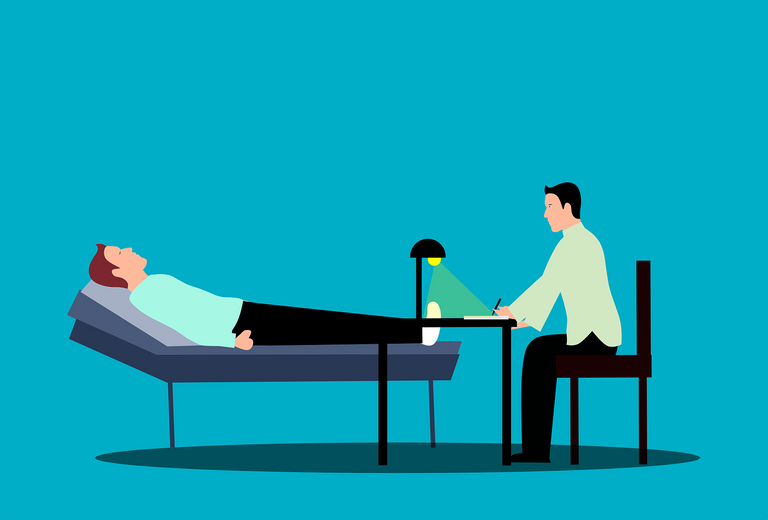Improve your total wellbeing through the knowledge of Mental Health
Mental health is not limited to the scope of Insanity, Alzheimer’s disease, Insomnia or Amnesia, it is beyond that. It is something every individual should be concerned with just like we are of our physical health. In this post, we will learn about what mental health is all about, how it intertwine with our physical health, how we can improve it and ultimately lead a better healthier life.

I remember one afternoon in our biomedical statistics class in the university. The lecture hall had students from different basic biomedical departments, waiting for the lecturer. Soon, he came in and told us the topic for the day was Health. Then he threw the first question, “Who can define the term ‘Health’?” Just as you’d expect in a typical learning environment, students started giving their diverse definition – either a tweak or improvement on an earlier given definition.
Yet none of our definitions satisfied the lecturer. We’ve never had a hard time impressing him. Finally, he gave his definition which he cited from the WHO.
Health is a state of complete physical, mental and social well-being and not merely the absence of disease or infirmity.
At that moment, we realized the mediocrity of our definitions. We’ve always believed health was just the absence of diseases, but didn’t even know about the social and mental part. That means my friend who is finding it hard to relate with other people is possibly unhealthy. And so also is the girl that is being bullied. Science has demonstrated the close relationship between mental and physical health. Examples include the popular placebo effect which plays tricks on the mind to exert a physical effect. The WHO says there's no health without mental health.
Anxiety is the most common mental disorder. It is estimated that 275 million people are suffering from anxiety disorder of which 62.1% are females. People with anxiety experience physical symptoms such as restlessness, tiredness, tense muscles and insomnia.

Research done in the United States shows evidences that each year, 1 in 5 adults experience mental health problems, and an estimated 4.5% has a severe psychological condition.
Mental health is a blend of psychiatry and psychology which deals with the brain and mind. The World Health Organization define of mental health as:
a state of wellbeing in which an individual realizes his own abilities, can cope with the normal stresses of life , can work productively, and is able to contribute to his or her community.
The way of life differ from community to community, and this has a tremendous effect on the wellbeing of the people. The social structure of the community, financial situation, choice of lifestyle and gene are few of the factors that affect a person’s mental health.
Like Nigerian youth do say, “When you are broke, you begin to feel symptoms of malaria!” I don’t know how true this is but I’m definite that the economic situation does affect the mental health and the whole health. A study conducted in Ilam, Iran on 903 families linked mental health conditions with poverty and living in the outskirt of a city. Factors such as availability of work in the local area, house quality, occupation, social involvement and education had effect on the health of these families. Non- modifiable factors such a gender, age and ethnicity also have effect on the mental health. Women generally in many part of the world are not given the full human right privileges given to men, hence this definitely affect their mental health.
Common mental health disorders includes but not limited to Generalized Anxiety Disorders, Panic Disorders, Phobias, Obsessive-Compulsive Disorder (OCD), Post-Traumatic Stress Disorder (PTSD), Depression, Bi-polar and Schizophrenia. Phobias are of many types, infact, the amount of phobias that exist is not known because they are very personal. What tends to be normal to a person can be a severe problem affecting the normal daily life of another.

However, mental health disorders are not like physical diseases that can be detected using procedures and machines. They are actual symptom based.
The following are possible signs of mental health disorders:
- Withdrawal from family and friends
- Excessive sleeping or too little sleep
- Excessive eating or lack of appetite
- Constant tiredness and fatigue
- Avoiding activities they used to be active or enjoy doing
- Having persistent reappearing memory or thoughts
In severe cases, individuals could become suicidal. However, mental health is not limited to this disorders as earlier said. Emotional states have effect on the physiological process of the body. Happiness tend to boost the immune system as sadness weakens the body, causes loss of interest in activities.
Now, knowing all this facts, how can you improve your mental health?

Surround yourself with good and supportive people: This is because generally, people who have strong family or social relationship tend to be healthier than those who do not have a support network. You should avoid isolation and as well negativity from people.
Get rid of wrong paradigms: Holding on to wrong believe system can affect our social life, mental health and also our overall health. Remember in the WHO definition of health, social health is also a criterion in the overall wellbeing. Self-limiting believes, facts that hinder social interaction are all bad for the health.
Get help when needed: If you discover you are going through an addiction, reoccurring memory, phobia or anxiety, you should seek the help of your family and friends, preferably a professional.
Avoid addictive substances: Substances that have addictive and hallucinating properties sold be avoided. Alcohol use should be reduced to its barest minimum. Hallucinating drugs could worsen anxiety and depression in some people, hence should be avoided.
Reduce Social Media: Nothing can replace the real world. You can compare the normal process of building up friendship with social media. These step involved in normal offline social interactions have their positive effects on the mind and health.
Break Routines: Routines are a necessity for productivity, however, breaking routines once a while help challenge the brain and break automacity.
Set Realistic Goals: The euphoria and eudemonia felt after accomplishing goals have wonderful effect on the brain, heart and total health. However, goals should be realistic and non-biased. It should be attainable.
Meditation: You’ve probably heard about the benefit of meditation. Meditation is very important to quieten the busy mind and allow fresh ideas emerge. It improves your state of mind and outlook on life, and as well improve effects of therapy.
Have enough sleep: Many bloggers keep blogging about the 8 hours of sleep recommendation. However the human body differ from person to person. Anywhere from 6 – 8 hours is enough for the body to be refreshed and the mind healthy. Lack of sleep foster depression, forgetfulness, fatigue and lack of interest in activities.
Eat Nutritious Foods: Balanced diet have effects on the brain and mind
Image Source:
External Images: These are gotten from pixabay and under the public domain.
References:
World Health Organization, Health Definition: Constitution of the World Health Organization
World Health Organization, Mental Health: Strengthening our Response
Medical News Today: What is Mental Health?
Economic factors influencing mental health using multiple regression model in Ilam province of Iran
Congratulations @damzxyno! You have completed the following achievement on the Hive blockchain and have been rewarded with new badge(s) :
Your next target is to reach 4500 upvotes.
You can view your badges on your board and compare yourself to others in the Ranking
If you no longer want to receive notifications, reply to this comment with the word
STOPCheck out the last post from @hivebuzz:
Support the HiveBuzz project. Vote for our proposal!
It was good idea